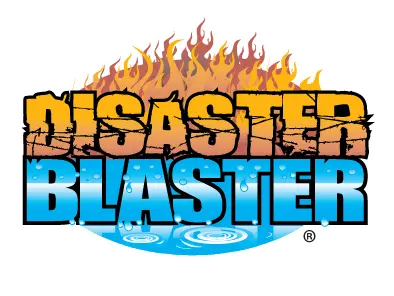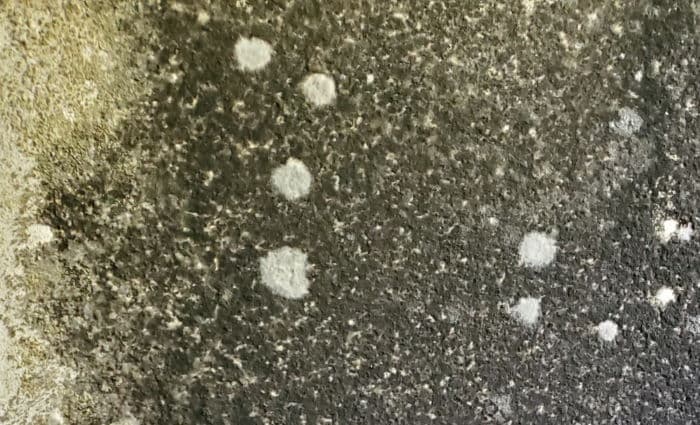You’ve heard of ‘Toxic Black Mold’ on the news, but how do you separate Truth from Fiction?

Who hasn’t heard of “Toxic Black Mold“? After all, it’s been featured on both local news segments, as well as national programs such as 20/20 and 48 Hours. But what is Toxic Black Mold, and what does it mean if you think you have it in your home? It can be incredibly difficult to separate mold fact from mold fiction, so we’re are going to try to dispel some of the myths, particularly as it relates to “Toxic Black Mold”.
Some common questions we hear:
• Is it hazardous to my health? Can I die from mold exposure?
• Is black mold worse than other kinds of mold?
• Is my home salvageable? Can the mold problem be remedied?
• I clean my house, so how can I have mold?
• Can I clean the mold myself or do I need a professional to do it?
• I found mold during a remodeling project. What should I do?
Is Mold hazardous to my health? Can Mold make me sick?
While these are all legitimate questions, most of them are the result of media reporting being more interested in sensationalism than fact. The fact of the matter is that most reported health effects of “Toxic Black Mold” are attributed to allergic reactions (some studies estimate as much as 30% of the population may have some form of mold allergy) or as a result of chronic, long-term, exposure. For the most part, Mold is best compared to an allergen such as cat dander, where some people may have mild allergic reactions, while others will exhibit no symptoms at all. For the vast majority of people with mold allergies, minor symptoms such as runny nose, watery eyes, headache, or coughing have been reported.
A much smaller percentage of the population has reported more serious health effects from severe headaches, rashes, muscle pain, new or increased response to allergens, nausea, vomiting and diarrhea, to more severe conditions such as hair loss, anxiety or depression, insomnia, fatigue, recurring infections, and autoimmune issues. Research is ongoing into the effects mold exposure has on these individuals, those at greater risk (developing children, the elderly, and those with compromised immune systems), and those subjected to long-term exposure to mold contaminated areas. For more information about this research, please see More Information on Mold Toxicity.
Is Black Mold worse?
So, we’ve addressed the myth, and current state of research, as it pertains to health problems resulting from mold exposure, but what are we able to ascertain from the color of the mold growth? Honestly, not much. The color of mold growth is affected by a number of factors, from the food source, to the growing environment, to the mold strain. While it’s convenient to categorize one color as more dangerous than another, the truth of the matter is that simply is not the case. Whether the mold growth is green, white, blue, or black, no mold color causes more damage to your home or indoor environment than any other and ALL should be addressed properly and effectively as quickly as possible.
While the media has certainly sensationalized the health hazards of mold exposure, one hazard introduced by mold growth has not been given attention, and that’s the damage mold growth can cause to your home. If moisture issues are not properly mitigated, mold growth can result in structural damage that can lead to expensive and complex repairs and mold remediation. For this reason, it is recommended to address water damage and mold growth properly and as quickly as possible. A Professional Mold Remediation Company is capable of removing the mold contamination, and should be able to make recommendations for resolving moisture problems and preventing future mold growth. It is strongly recommended to contract with Mold Remediation Companies that do not do their own mold testing, as this is viewed as a conflict of interest.
Where do mold problems come from? Can I clean up a mold problem myself?
Though your home may be kept very clean, it is important to understand that mold spores are everywhere, and require only water and a food source to grow. As most building materials are viable food sources for mold, once moisture is present, regardless of how clean you keep your home, mold growth can result. Though we can certainly understand feeling a need to clean a mold problem when you do discover it, it is important to recognize a mold contamination that requires Professional Mold Remediation by qualified experts. In the case of mold contamination, it is often what you don’t see that is of the most concern. Though you may see visible mold growth on a wall for instance, a Professional Mold Remediator may be able to determine the likelihood that mold growth also exists within wall, floor, or ceiling cavities, or other hard to reach areas. Additionally, mold spores will be in the air, potentially spreading the mold growth to other areas of the home. For these reasons, it is important to contract with a Professional Mold Remediation company such as Disaster Blaster, who will be able to determine the unique needs of your mold remediation project, and put in place steps to resolve the mold problem and remove the contamination.
Whether you discover a mold issue following a storm event, a roof leak, or a pipe break, following long term issues such as basement or attic humidity problems, or during a home remodel, it’s important to recognize that mold issues can be much worse than you initially realize. Not only can mold growth be hiding inside wall or ceiling cavities, but if cleaning or tearout is attempted and this work is not completed properly, mold spores could contaminate other areas of your home, potentially creating a much larger project. For this reason, it is always a good idea to have a professional take a look at any mold issue to determine the full scope of the contamination and what steps will be necessary to rectify it properly.
Should you have any questions or concerns that you may have a mold problem in your home, please don’t hesitate to contact your local Disaster Blaster office! Our commitment is to the health and safety of our neighbors.
Interested in older news stories? Please see our News Archive.

